Presenting: The Better India’s Best of 2020 – Noteworthy Businesses
From composting millions of tonnes of garbage to creating livelihoods for farmers via organic farming and recycling plastic waste into useful, everyday essentials, here our are remarkable businesses of this year.
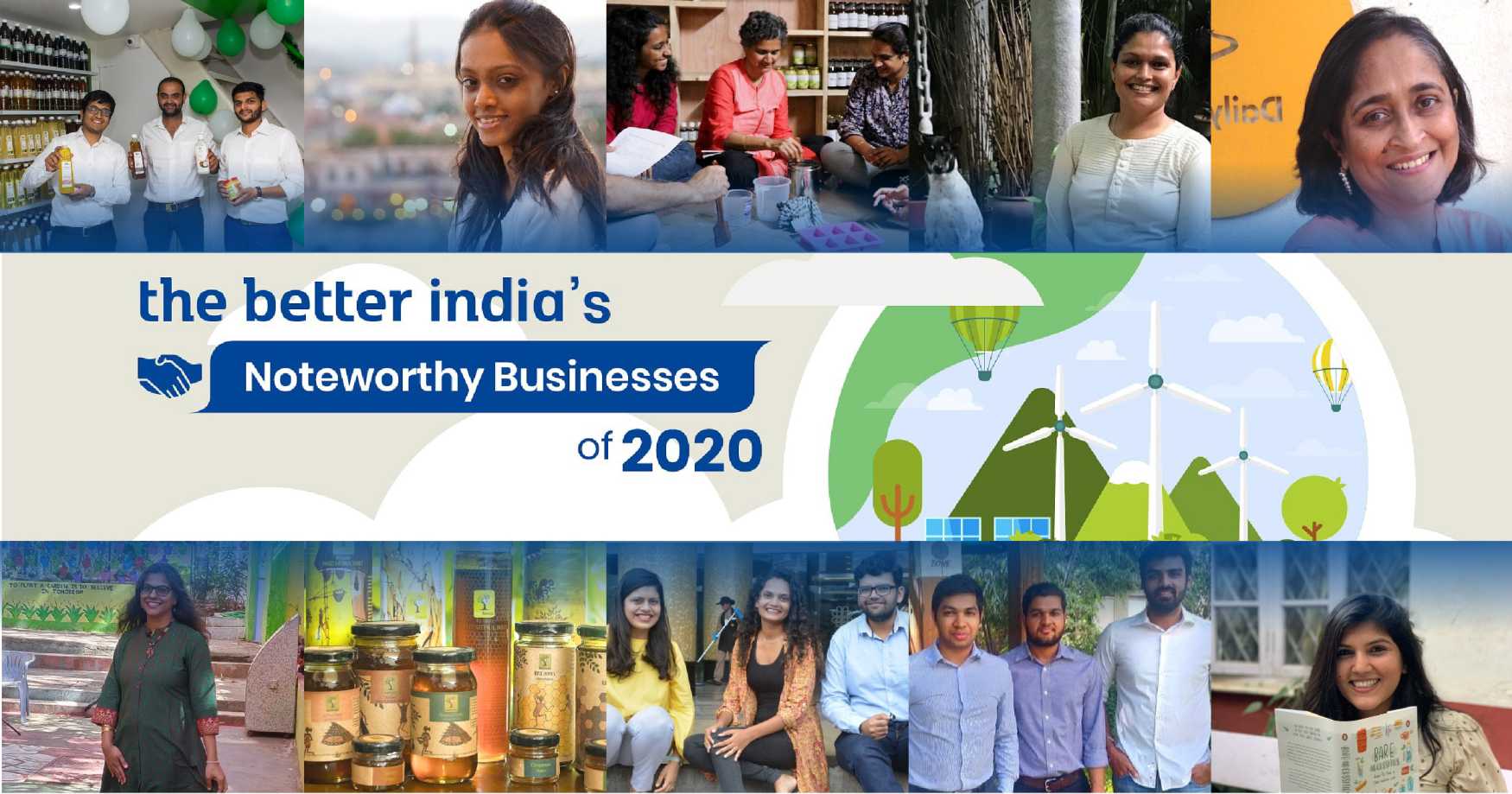
This article is a part of The Better India’s ‘Best of 2020’ — A list of 60 awesome changemakers recognised and honoured by The Better India this year. This is a celebration of remarkable people who exhibited courage, grit, passion, innovation, compassion and above all else, humanity. Find out all about them here.
To say that it was a tough year for small and medium enterprises everywhere would be an understatement. While the Coronavirus pandemic and its subsequent lockdowns was a dampener on the Indian economy in 2020 at large, many sustainable initiatives borne out of concerns for ragpickers, sanitation workers, farmers and the marginalised, have continued their journey.
With products ranging from compost to creams, here are our top ten such enterprises, chosen for their dedication to making things better for everyone, from consumers to employees to producers.
Daily Dump: Compost Compost Compost!
For Poonam Kasturi, what holds priority, even during a pandemic, is composting waste. “I am very concerned about everyone composting,” she tells The Better India.
In April 2006, the trained industrial designer and social entrepreneur set up Daily Dump — a platform that changes citizens’ mindsets about waste disposal. Today, having sold their cylindrical shape, terracotta, home and community composters to over 60,000 customers in 17 Indian cities, including USA and Dubai, Poonam says during the pandemic their “home composters, shipped online, monthly, have increased 33%”.
“We are now testing two new products for the community composting market. We have also created an Experience Centre in August 2019, to cater to people who have doubts about composting or about their sustainable choices, and to explain these ideas in a way people of all ages can understand,” says the 58-year-old.
And what keeps her going to innovate new ways to tackle waste management, Poonam says, “Most people these days talk about doing (something) these days. But I feel ‘not doing’ is equally important. One of the things that COVID-19 has taught all of us is — just because you can, you shouldn’t. When you run a small business, especially where you want to remember the connection to this earth and its physical resources, that’s a great space to be in.”
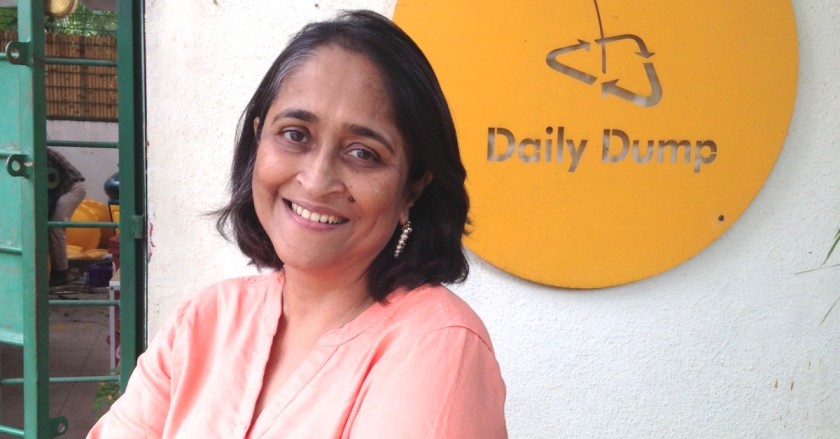
Read more about Poonam and the Daily Dump here.
Opt for Sahar Mansoor’s Bare Necessities
On a mission to eradicate single-use plastic, Sahar Mansoor began her own personal care products called Bare Necessities in July 2016. From personal and dental care products like bamboo toothbrushes and charcoal tooth powder to even sustainable alternatives to plastic bowls, the brand has it all. And today, Bare Necessities continues to innovate in the hopes to lead everyone to a zero-waste lifestyle.
“Over the course of 2020, especially with the year that we’ve had, we had a variety of innovations such as Swadeshi Tumbler and Upcycled Kits with cutlery and straws, Kids Activity Book, Ecotopia Board Game! Zero Waste Playing Cards with Sustainability-themed facts,” says the author of her very first book Bare Necessities – How to live a zero-waste life.
Sahar says the pandemic and lockdown definitely had an impact on their young social enterprise this year. “We decided to innovate and pivot and see what impact we can make during this time,” says Sahar, who also launched a podcast featuring Poonam Bir Kasturi’s Daily Dump and also conducted workshops to keep the community engaged. “We also launched an Easy DIYs to go zero waste ebook as we were all spending ample amounts of time at home,” she adds.
Sahar says she is “inspired by all the stories of resilience” to make it through these tough times. “What drives me to continue innovating in this sector is the need for a sustainable and just future, the need for gender equality and women empowerment and the need for transparency,” she concludes.
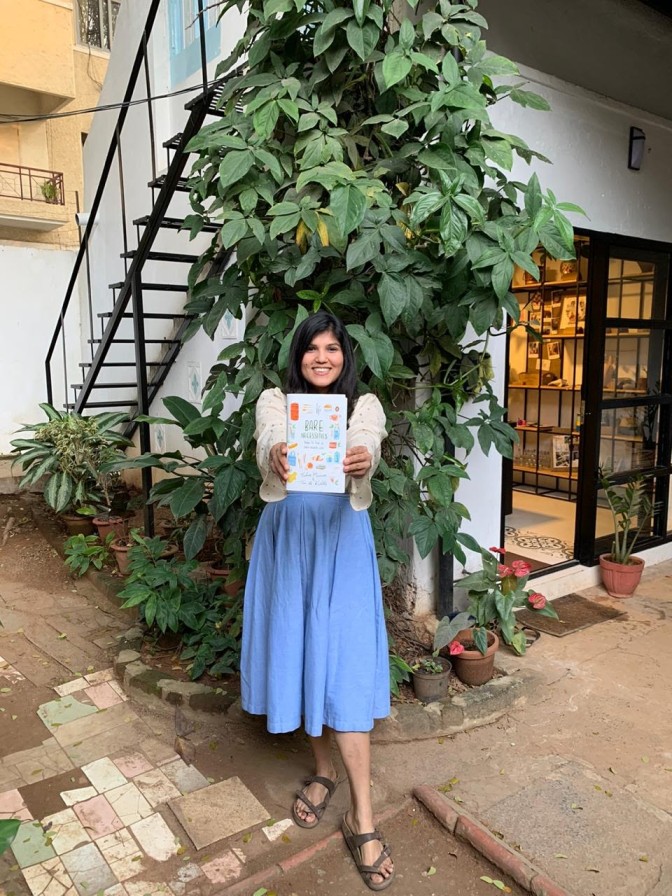
Read about the start of her brand here.
PraanaPoorna — What’s in Your Face Cream?
The Bengaluru-based IT professional and doting mom turned entrepreneur when she realised harmful chemicals caused her daughter’s acute skin allergies in consumer products. What started as Smitha Kamath’s personal endeavour to provide organic food and cosmetics in 2012, snowballed into a community initiative — PraanaPoorna, which has expanded from Bengaluru to Chennai, Coimbatore, Gurugram, Madurai and now even Mumbai and Goa. “We are scaling up operations. Taking full benefit of the lockdown, we got the lab testing and certifications done for our disinfectant products, which has benefited our sales. We have also added our B2B services during this time,” says Smitha.
At PranaaPoorna, one can buy everything from bio enzyme cleaners to dishwashing soap, body scrubs and beeswax that are sourced organically, employing farmers. Speaking of the current crisis, she adds, “People realised that their immunity was impacted because of the overuse of chemicals in consumer products. Their awareness about the importance of organic products has increased without us having to do promotions.” The brand, which is still in its nascent stage of growth, sticks to community and social media promotions.
Finding local promoters and producers in each city, PranaaPoorna gets into agreements with them to supply the products repackaged by micro-enterprises to reduce packaging. This, Smitha says, is an alternative to distributing her products sustainably, pan India.
“We are looking at microenterprises coming together so the production will be distributed but with a collective marketing approach and all the same certifications as for quality. This will hopefully reduce the transport and packaging in the process, following the UN goals of sustainable packaging and production,” says Smitha who has already kicked off this initiative in Mumbai during Navratri with the brand Prema Safe Earth.
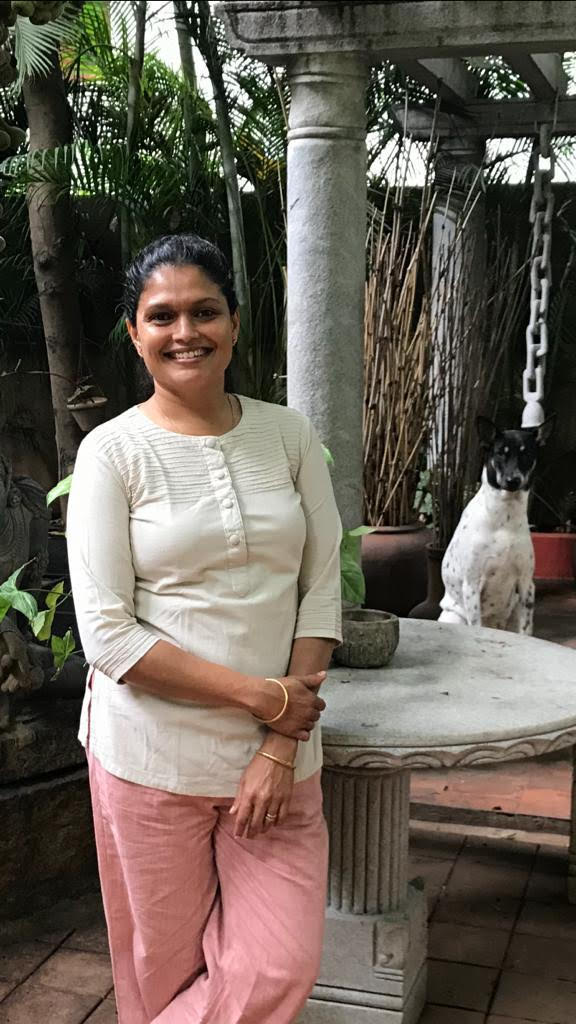
Read the full story here.
Fresh from the forests — Last Forest Enterprise
Located in the heart of the Nilgiri mountains, Last Forest Enterprise is an intermediary platform to market forest produce sourced by indigenous communities since 2010. Today, with stores in Coonoor, Kotagiri and Ooty, its founders Mathew John, Pratim Roy, and Snehlata Nath, say there was “a 200% increase in revenues from e-commerce and a 5000% increase in exports this year”.
“There were increased efforts on these two verticals, which has us at a 30% decrease in revenues, compared to this time last financial year,” says Nandan HS, enterprise development head.
Speaking of the challenges of the lockdown, Nandan adds, “We had to shut down one of our stores in Ooty, which saw our revenue from retail drop by almost 83%. We also had to shut down our Slow Food restaurant – Place to Bee. This, unfortunately, saw 12 of our very own being laid -off.”
Along with the World Fair Trade Organisation and WFTO Asia, Last Forest launched the ‘People’s Mask’ project. “We tied up with Indian Yards, who worked tirelessly with us and produced close to 11,000 masks with their strong team of women in the hill station of Ooty. These masks were distributed to sanitation workers, police officers, our own staff, and their families as a lot of orders for these masks came in through our website,” Mathew says.
Brand spokesperson, Madhu Ravishankar says, “What continues to drive us in this sector is the sheer passion for ensuring that the true cost, fair price, and good health is a given at any point to all stakeholders who are involved with us. We were able to impact an additional 150-200 individuals from the communities we work with, to the already existing 1600 shareholders of our producer company.”

Read more about Last Forest here.
Of Bamboo Things and Greener alternatives — Beco
Another sustainable initiative based in Mumbai is Beco — a platform for greener alternatives to single-use plastic. The brainchild of Aditya Ruia, Anuj Ruia and Akshay Varma, Beco’s business has “increased multifold, around 10 times of what it was a year ago”. “Along with our global sales picking up as we are selling to more developed countries, our offline Tier II distribution is also doing well,” says Aditya.
Mitigating over 125 tonnes of plastic waste, Beco markets bamboo products such as toothbrushes, tissue rolls, toothpicks, and garbage bags made from cornstarch and paper stick cotton buds. “During the lockdown due to COVID-19 we have been focusing on growing our existing range of products,” Aditya adds.
The research and development for these products were initiated in October 2018; the brand is present across more than 1000 retail stores, organic stores, and online e-commerce portals.
“Today, there is not a very strong need to educate people on sustainability as awareness comes with personal experience. So what drives us is being underdogs in a world where multinationals dominate the sales in the online and offline business. This is a fight we look forward to every day,” Aditya says.

Read about Beco’s story here.
Disguise Cosmetics: A Vegan Makeup Brand That Cares
Disguise Cosmetics, a small makeup brand based in Mumbai, founded in April 2018, has a range of 100 per cent vegan and cruelty-free products like lipsticks and kajal. To add to their range, the brand has now launched its talc-free eyeshadow.
“We thought since people will be wearing masks in and around the festive season this year, we wanted to focus on eye-makeup. We have seen that the ability to customise your eyeshadow palettes has resonated well with customers. The eyeshadow also comes in plastic-free packaging,” says Desiree Pereira, a marketing executive for the brand, who started the initiative with Lakshay Mahendroo who manages operations and Shivangi Shah who takes care of product development and evaluation.
“Our most recent product launch should be India’s first talc-free eyeshadow. Talc-free makes it safer to use as even though it is a natural mineral, it often has a lot of asbestos impurity,” she says.
Replacing talc with mica in their eyeshadow, Desiree says, “While we use this as a replacement to talc, we also ensure that the mica we are sourcing is free of child labour. All mines have to follow labour laws, which includes no children working there. We ensure that our suppliers are not using any mine which might be illegal. We also do third party checks. Our suppliers also work with midday meal programmes for families who would send their children to work are incentivised against it.”
While April, May, June saw the brand receiving little to no sales, the founders say they used this time to develop “more sustainable products”.
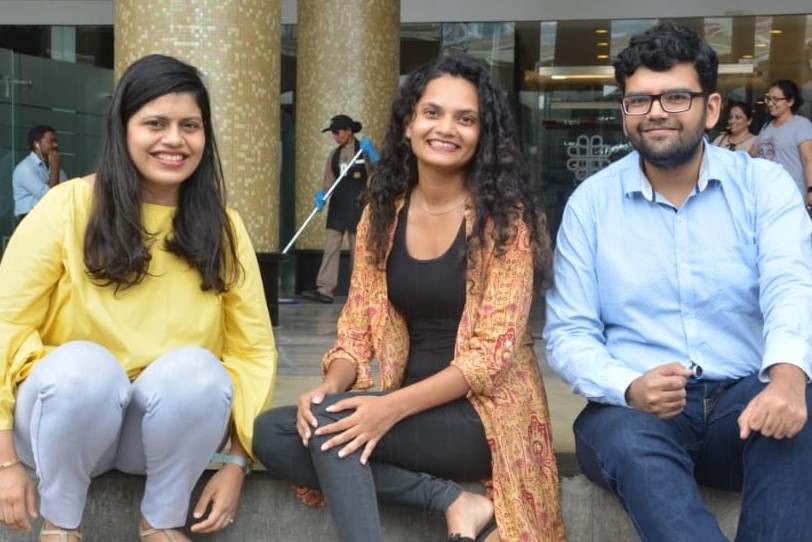
Read more about Disguise here.
Sneha Sirivara’s Sambar Stories
“The beginning of this year was a dark phase for most businesses, but it seems like there is now a silver lining,” says Sneha Sirivara, who started Sambar Stories—a platform for natural spice mixes, chutney powders, coffee, pickles, ready-to-eat mixes and snacks— in her garage.
Noticing a market for traditional spice mixes, this IT professional with a degree in Computer Science Engineering started Sambar Stories in 2013. “Today, our products have reached different parts of India through online sales. We now get around 2000 orders a month,” she adds.
Along with the sources being ground in a unit, Sambar Stories snacks like chakli/murukku, appalams, nippat/thattai are made by women from villages like Kallakurichi in Tamil Nadu.
The brand sells over 50 completely natural products containing no artificial colours or preservatives. Speaking about the lockdown, Sneha says, “New products like healthy ready-to-cook mixes have seen quite some popularity during this time. Sales of our Diwali boxes of sweets and snacks also received a lot of positive feedback.”

Read more about Sambar Stories here.
Native Circle is Vocal for Local
Native Circle was started by Swayamprabha Hegde and Mahesh Kallare Hegde in 2016. From helping 15 farmers earn a livelihood, the brand now sources raw materials for their value added products from 300 farmers.
During the lockdown period, Swayamprabha says, their sales dropped by almost 50% “but recently, things have been picking up slowly”. Mahesh adds, “We have four or five rural brands which we partner with for the sale of their products on our website, and their sales are picking up slowly.”
Thinking of how to minimise packaging further, Swayamprabha says, “We are currently using glass and papier-mache to package our products. Though, we are in talks with many sustainable initiatives like using banana fibre to replace glass.”
Native Circle is a big proponent of going ‘vocal for local’. Mahesh adds, “Small businesses are not only important but a vital part of the economy. When you have more local initiatives, there is a larger possibility of focusing on and giving genuine products sourced from local origin.”

Read their full story here.
RUR Greenlife: Are you Reducing Reusing Recycling?
Another success story of a mother concerned about her daughter’s health, is RUR Greenlife — which stands for Reducing, Reusing, Recycling. In 2009, Monisha Narke joined hands with other mothers concerned about pollution. Today, the social enterprise recycles 750 tonnes of waste annually and earns in crores via this endeavour.
With an array of RUR products made from Tetra Pak cartons like pen stands, coasters, photo frames and even benches. Go Green with Tetra Pak programme has set up over 200 collection centres in Mumbai and Pune. Today, they’re not only supplying composters pan India but also to Kuala Lumpur and Germany. “During the lockdown, we focused on research and development of products and added our new home Green Goal composter, which is compact,” says Monisha.
She adds, “For our tetra pack initiatives, as people couldn’t move out much, we started picking up cartons from homes. It’s our mobile collection drive. Sahakari Bhandar is our partner for this initiative.”
“Over the decade, RUR Greenlife has innovated to design solutions, making solid waste into a resource through eco-education, home and community composting projects, recycling campaigns, CSR initiatives and EPR programmes. I see waste being invested back, and our customers becoming more eco-conscious. This is what motivates me to grow RUR to achieve greater greener goals,” concludes the 47-year-old.
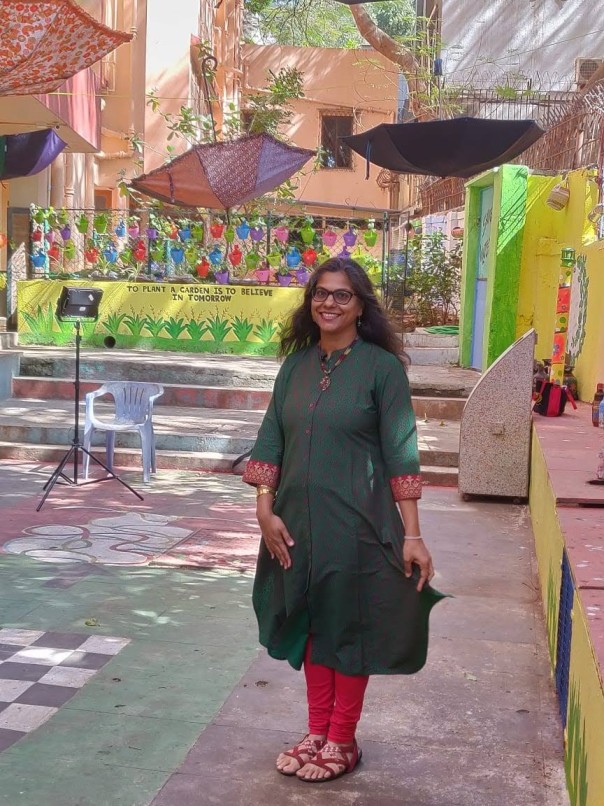
Read more about Monisha and her sustainable initiative here.
Satvyk — Organic Food Chain, Empowering Farmers
Realising that most of the fruits and vegetables we consume are pumped with chemicals to enhance their looks, Akshay Agarwal started Satvyk with his co-founder Gajendra Choudhary in 2016. Today, with 40 stores, and over 250 products, along with perishables like fruits and vegetables, Satvyk is a platform which procures organic produce from farmers directly along with providing them with technical know-how on organic farming.
“Due to the pandemic, our sales of organic food spiked. Being covered under essential services, we have seen an increase in customer acquisition rate 12-15% month-on-month as all our stores were open during this time. Average order value per person per day has gone up from Rs 800-Rs1000 to now Rs1300,” says Akshay.
“Our Adrish Zero-waste Organic Store, started in February 2018, where customers bring their own containers and bags to buy grains, pulses, fruits or vegetables, now has expanded to eight stores. The Better India coverage has helped a lot in this endeavour,” Akshay adds.
The organisation now sources produce from 9000 farmers. “At Satvyk, we aim to develop a larger, greener and more sustainable sense of purpose. We have to give a sustainable livelihood to the farmers producing the grains, vegetables and a fair price to customers. But more importantly, we aim to take care of Mother Earth,” he concludes.
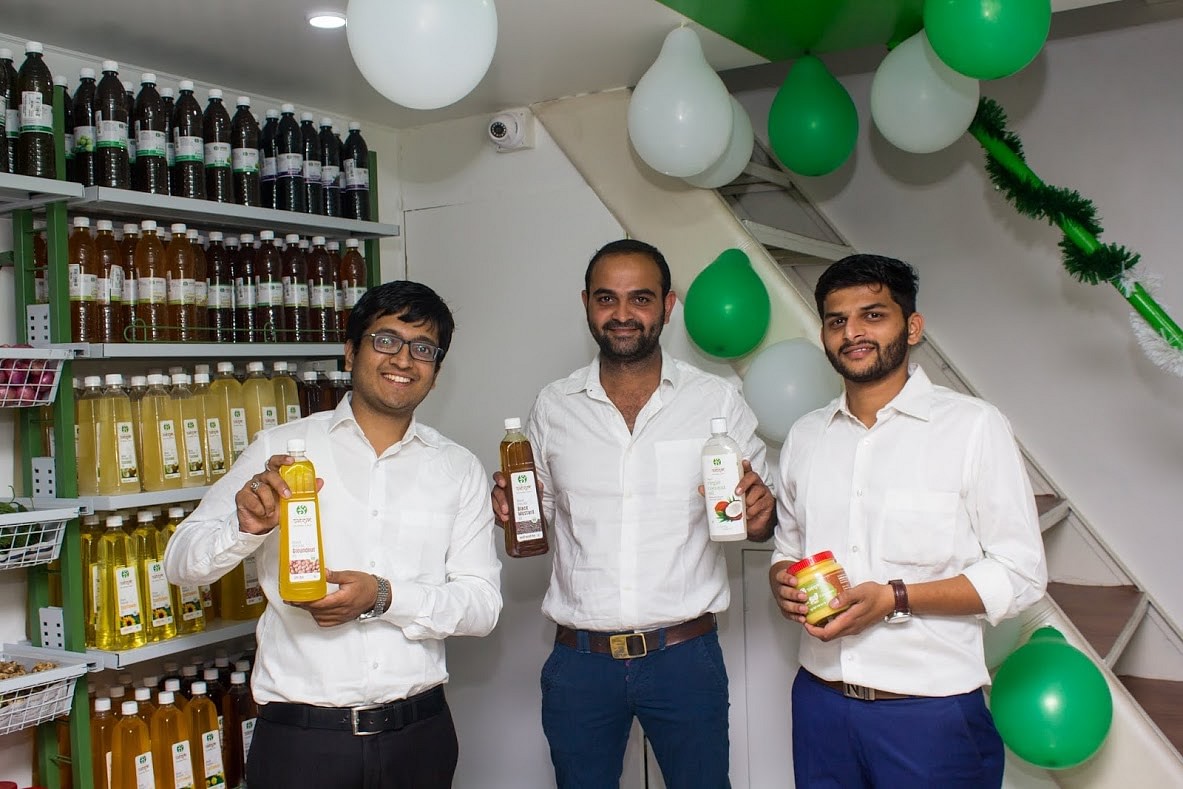
Read more about Satvyk’s story here.
If you found our stories insightful, informative, or even just enjoyable, we invite you to consider making a voluntary payment to support the work we do at The Better India. Your contribution helps us continue producing quality content that educates, inspires, and drives positive change.
Choose one of the payment options below for your contribution-
By paying for the stories you value, you directly contribute to sustaining our efforts focused on making a difference in the world. Together, let’s ensure that impactful stories continue to be told and shared, enriching lives and communities alike.
Thank you for your support. Here are some frequently asked questions you might find helpful to know why you are contributing?


This story made me
-
97
-
121
-
89
-
167













